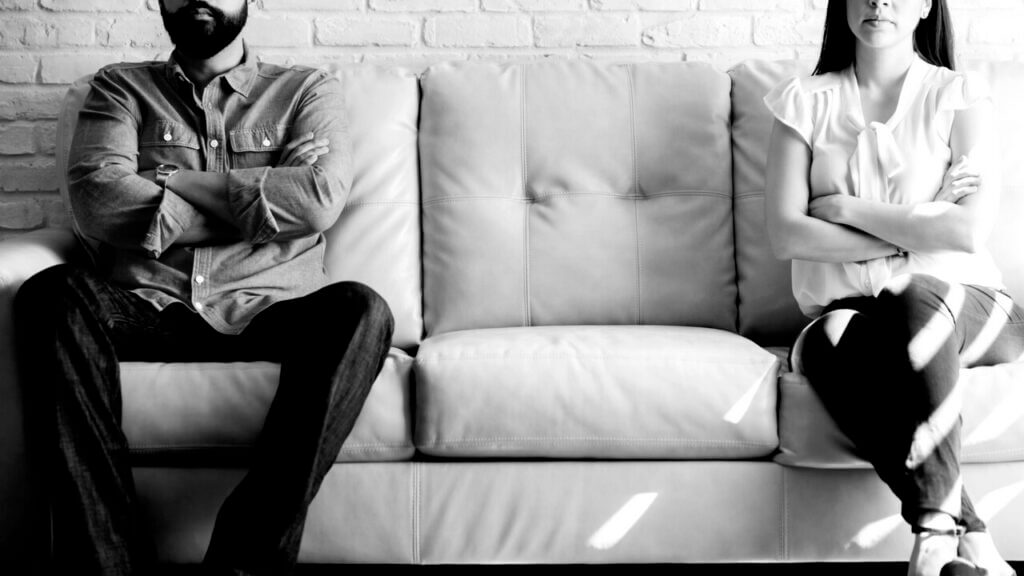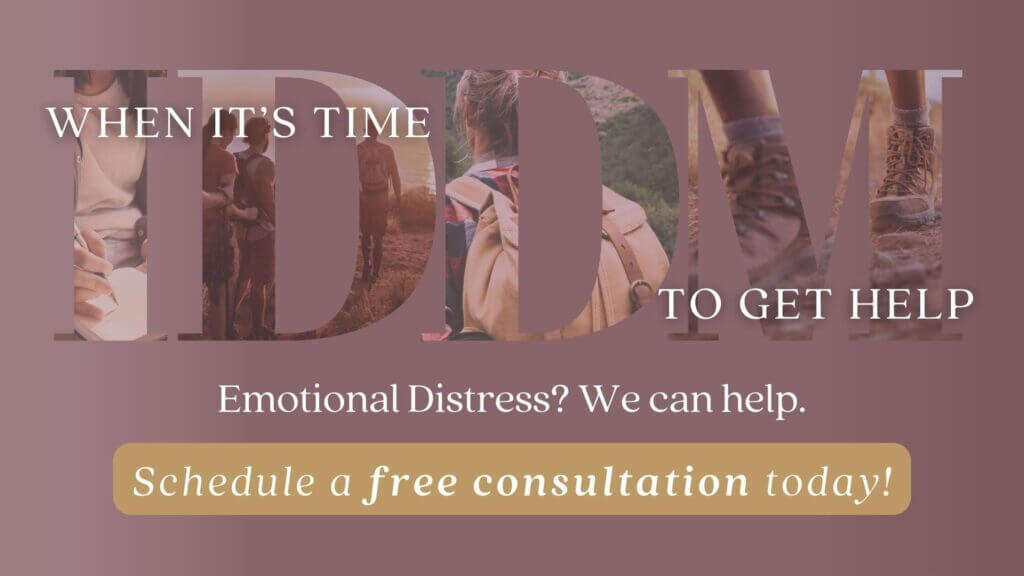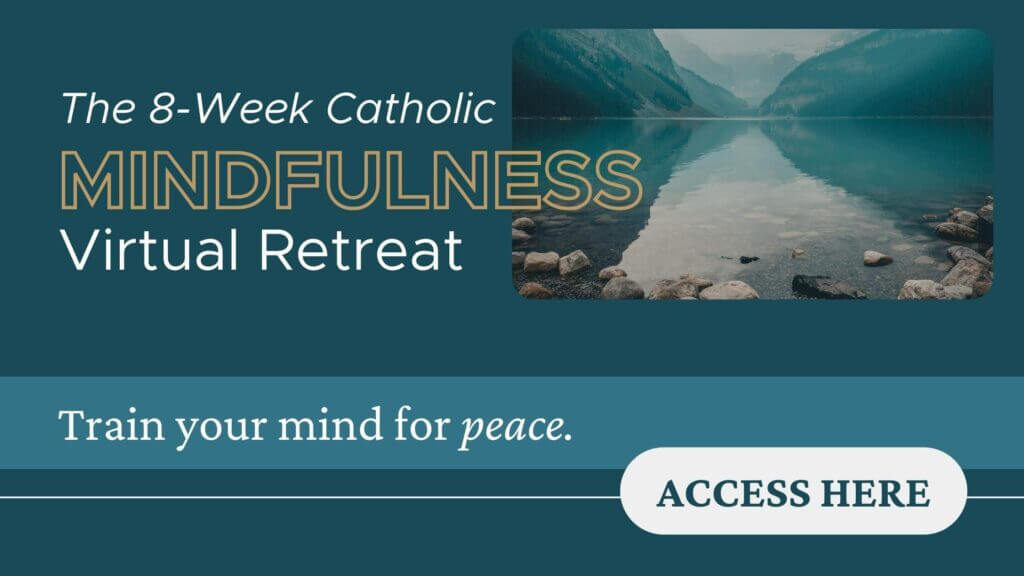
Labeling relationships as “toxic” is widespread right now; let’s take a Catholic approach to difficult relationships and examine why they’re not always meant to be easy.
Navigating difficult relationships
Why is this relationship so draining? Do I just need to cut this person out of my life completely?
I can’t handle my [parent/child/boss/etc.] anymore! Every conversation we have ends in an argument! Should I stop communicating with them for good?
I get questions like this all the time from clients and friends alike. The questions aren’t about just one kind of relationship either. From friendships to dating to parent/child relationships, the question of healthy boundaries pertains to a variety of relationships.
Many people, taking a cue from pop psychology, may be tempted to quickly label the difficult relationships in their lives as a “toxic relationship” and advise you to completely sever all communication with that person.
Although pop psychology has tried to make “neat and clean” something that is anything but that, in attempting to practice our faith as Catholics it becomes evident that things are not always as black and white as we would like them to be.
When dealing with a “toxic” or difficult relationship, there’s no easy, one-size-fits-all answer about what to do.
Sometimes very strict boundaries or complete separation is needed to ensure you aren’t being pulled into another person’s craziness. (This is especially true when aspects of mental or physical safety is involved).
In other instances, the relationship may not necessitate such measures. In those cases, what if we feel called to suffer with people in their difficulties, even though it may be difficult for us?
Discerning the answer to the question of how to deal with the difficult people in our lives requires an understanding of boundaries, knowing the purpose of relationships, and growth in self-awareness.
A model for boundaries in difficult relationships

An example that can help us understand the concept of healthy boundaries is that of Simon of Cyrene – the man pressed into service to help Jesus carry his cross.
Although Simon helped Jesus carry his cross, bearing much of the burden for him at certain points along the road to Golgotha, at some point Simon had to let Jesus go the rest of the way.
Simon could not do for Jesus what Jesus alone was called to do.
As Christians, this is a model we can use to understand the proper balance between being with people in their suffering and letting people feel and deal with the suffering they are responsible for in their lives.
We can see Christ suffering in others, maybe with some aspect of mental illness that is perpetuating the toxic nature of our relationship with them. If appropriate, we can help them to shoulder a small piece of their cross through our presence in their lives. But how do we know when to help and when to step back?
This is where understanding the purpose of relationships and growth in self-awareness is key.
We are made in the image of God who is a communion of persons, and through each of our relationships we are growing together in the communion of saints. Because we are born into concupiscence, we need to die to ourselves so that we can be united to Christ, who is the ultimate gift.
Our relationships are ultimately given to us to help us get to Heaven.
Self-Awareness

When we identify that the way we’re relating to someone is not helping us (or them!) get to heaven, that’s when we know we need to set a boundary. To identify when – and what – boundaries are needed, we have to cultivate self-awareness.
Self awareness is key to deciding what boundaries need to be in place in particular relationships.
The dignity of the human person is that we’re created in the image of God with a destiny for growing in union with Him, and there’s only one person responsible for making the choices that will get us there… us.
So it follows that, if we are the only ones responsible for our choices, it is imperative that we are aware of the thoughts and emotions present when we choose to act in certain ways. The more self-awareness we possess, the more easily we can recognize what our responsibility is and what is the responsibility of the other person.
For example, my vocation is marriage. The relationship context in which my gift of self plays itself out is my marriage. In entering the sacrament of marriage, I’ve signed up to do everything I can to help my wife get to heaven.
However, my primary responsibility is not for my wife but for myself. Why? Because, ultimately, I am not responsible for her choices for herself; I have only been given responsibility for my choices.
If I’m aware of this in my relationship, and I find myself in a conversation with my wife where I realize through self-awareness that the way I’m talking to her is not getting me to heaven? That’s when I need to set a boundary.
If we’re arguing and I recognize I’m not acting in a way that lines up with my purpose, this contributes to how I know when to make a boundary for what I need: I need a breather. I need to take a step back. I need to pause this conversation so I can calm down. I’m responding to your frustration with my own frustration and I won’t be able to respond charitably…” etc.
Personal Responsibility
Knowing where our responsibility ends and the other person’s begins, understanding the purpose of relationships, and cultivating self-awareness to recognize when we’re not acting in a way that lines up with that purpose: all contribute to how we can know when and what kind of boundaries we need to set with those difficult people in our lives.
One way to increase self-awareness is through the practice of Catholic Mindfulness! Learn Catholic Mindfulness through our 8-week Catholic Mindfulness Virtual Retreat, which gives you daily “bite-sized” lessons in how to connect your faith with your emotional life so that you can feel the peace God has intended for you.

If you found this blog post helpful check out these other articles:


Hello, my girlfriend and I are interested in couples Catholic counseling. We would like to book our consultation with both of us participating, and we are wondering if that is an option.
Thank you!
What a gift that both you and your girlfriend are being intentional about deepening your own interior freedom and healthy relationships! You can absolutely have a consultation with both present, just mention this when you schedule the consult: https://catholicpsych.com/mentorship. God bless you both.